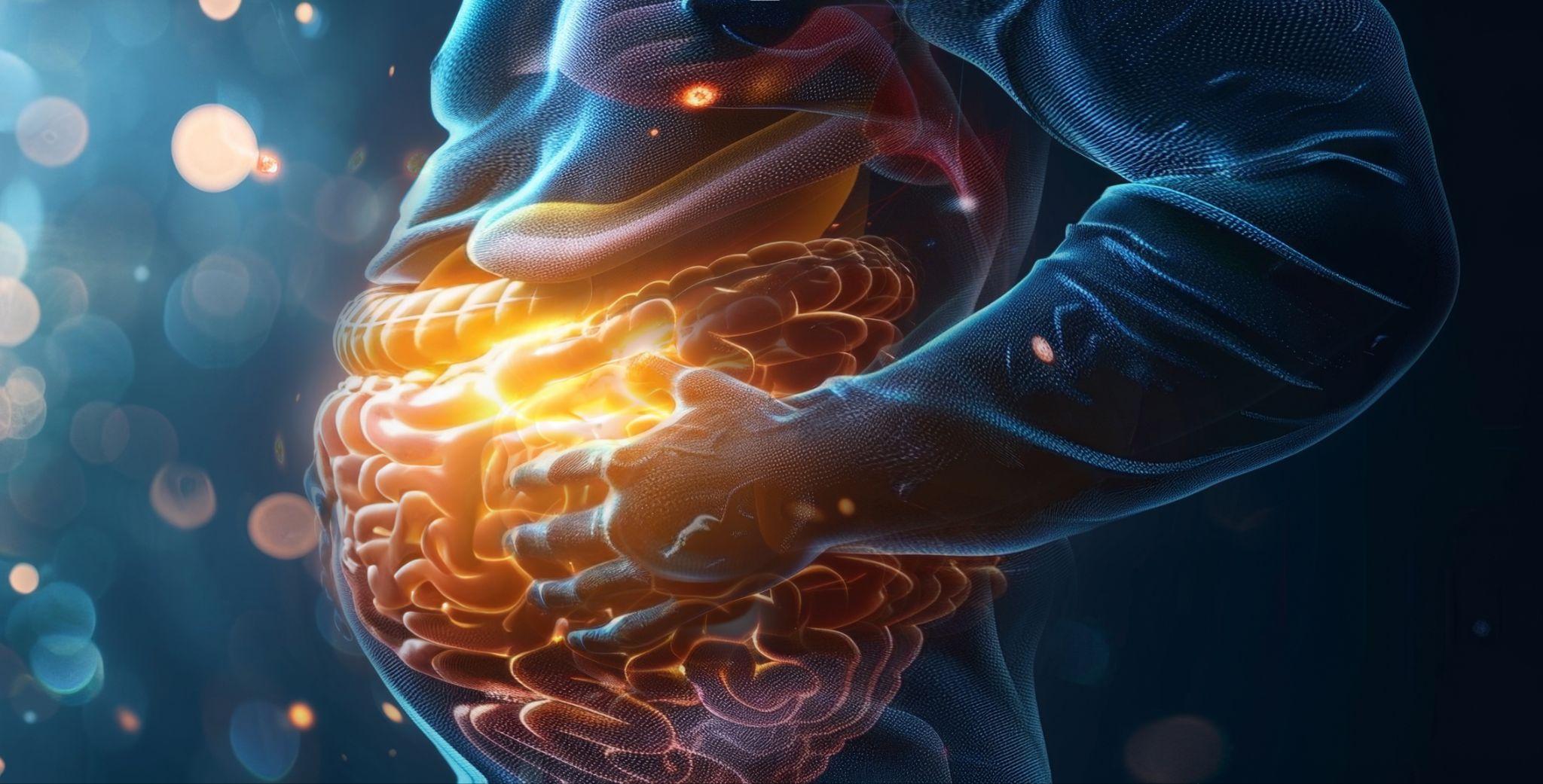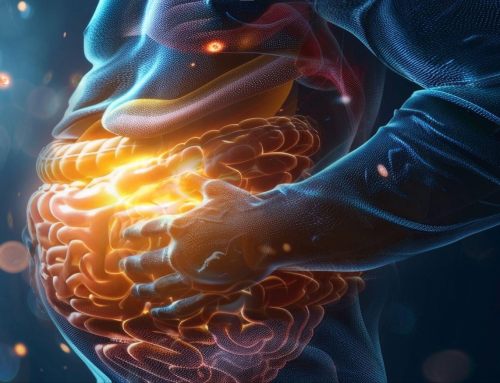Can Lifestyle Choices Influence DNA Methylation?
What if you could control how gracefully you aged? Or reduce the risk of developing a chronic health condition? While we don’t have control over the genes we are born with, we do have control over how those genes get expressed. The choices we make every day, in terms of our nutrition and lifestyle, have a significant impact on methylation, a process significant for health and well-being. In fact, our lifestyle choices may be the most valuable factor in terms of modulating DNA methylation and therefore supporting wellness (1).
Setting the Stage: DNA Methylation & Epigenetics
Methylation is a natural biological process that is always occurring in the body, vital to the functioning of nearly all its systems. It is significant for producing molecules the body depends on, such as DNA, RNA, histones, vitamins, neurotransmitters, hormones, proteins, and lipids. It is also equally important in supporting the body with detoxification, ridding it of harmful toxins and waste. Therefore, the results of methylation can impede or support many aspects of our health (2).
Epigenetic processes are reversible alterations to the genome that result in modifications to gene or DNA expression. DNA methylation is an epigenetic process used by our cells to control DNA expression. This process has been suggested to play an integral role in health and aging. Long-term lifestyle habits, including nutrition, sleep, exercise, and toxicant status (such as smoking, alcohol consumption, air pollution, and stress), influence epigenetic and methylation patterns (3).
Epigenetics is the field of DNA expression that looks at the impact our daily lifestyle choices have on influencing our health. DNA methylation can essentially be altered by nearly all of the factors in our lives. Through DNA methylation, the expression of our genes can be modified, and we have more of an impact on this than we think in terms of how well we live and take care of ourselves.
How Does DNA Methylation Affect the Genome?
The genome refers to the complete set of genetic information in an organism. Genetic variants, known as single nucleotide polymorphisms (SNPs), account for the extensive and various individual differences in DNA (4). For instance, the SNP MTHFR C677T has been associated with an increased risk of Metabolic Syndrome, among other conditions (5).
A number of SNP/genetic variants can work together to turn on or off certain pathways that can confer an increased or decreased risk for certain conditions. It is likely that several genetic variants act together in concert to “turn on” or “turn off” various molecular pathways that increase or decrease the risk of certain diseases.
SNPs can also contribute to problems with methylation. Issues can occur as a result of hypermethylation (an overabundance of methylation) or hypomethylation (a lack of adequate methylation). Identifying these gene variants can be a preventive measure against a number of health conditions, and can contribute to our understanding of their etiology, yielding more efficient treatment outcomes.
DNA methylation has been suggested to be involved in cardiometabolic health conditions such as obesity, diabetes, heart disease, and other cardiovascular health conditions, in addition to Chronic Obstructive Pulmonary Disease (COPD) (6, 7).
Compromised methylation patterns have also been suggested to be involved in immunity as well as mental health (8). Hormonal issues have also been linked to problems with methylation, which is important for healthy detoxification and metabolism of estrogen in the liver.
The Lens Focuses: DNA Methylation & The Epigenome
Epigenetics, as noted, refers to the influence our lifestyle has on DNA methylation. Lifestyle and environmental factors alike can induce changes in DNA methylation (9). Epigenetic DNA methylation describes the “turning on or off” of certain genes, which influences the way in which those genes become expressed. The choices we make every day influence epigenetic patterns and methylation. The changing epigenome thereby influences the way our genes become expressed, leaving a lot of power within the way we live our lives (10).
How Methylation Becomes Compromised
High Homocysteine:
Homocysteine is a compound that can induce negative effects in the body at elevated levels (11). High Homocysteine, a byproduct of the methylation process, is often indicative of an imbalance in methylation patterns. Homocysteine can be elevated due to genetics, diet, or lifestyle factors. High levels of homocysteine may indicate cardiovascular health problems and other conditions associated with inflammation (12).
Compromised neurological health may also be an indication that the body is having issues with methylation. Alzheimer’s, dementia, and autism have all been linked with disruptions in methylation patterns (13).
In terms of mental health, high levels of homocysteine can hinder the conversion of folate to serotonin. Without sufficient methylation patterns, a number of other neurotransmitters integral to mood health are also not synthesized as efficiently (14).
Environmental Exposure:
Air Pollution – Research suggests that exposure to air pollution can modify or alter DNA methylation, which in turn can have an impact on health, such as increasing inflammation and making one more prone or susceptible to illness (15).
Toxicant Status – Smoking, alcohol consumption, or other substance use can compromise methylation in the body. These substances can decrease DNA methylation over time (16).
Inadequate Nutrition – Sufficient nutrient reserves are necessary for methylation to occur in the body. For instance, folate is essential for healthy methylation patterns. Insufficient nutrition for one’s unique biochemical makeup (including any genetic variants/SNPs, etc.) can be a reason for methylation pathways to be compromised, as they can alter or suppress function. An inflammatory diet can also result in too much methionine, which is converted to homocysteine, causing elevated levels.
Where We Exert Control: Nutrition & Lifestyle Can Have a Positive Impact
Load Up On Nutrients Necessary for Methylation
A number of micronutrients, such as B vitamins, are needed for methylation. Micronutrients serve as methyl donors for S-adenosylmethionine, and SAM production, supporting methylation.
B vitamins involved in methylation are:
- Vitamin B12 is involved in the methylation of homocysteine to methionine, as well as the conversion of methylmalonyl-CoA to succinyl-CoA, a mitochondrial enzyme with energy production capabilities.
- Folate’s biochemical role also includes one-carbon transfer reactions (as in methylation) and reducing levels of homocysteine.
- Vitamin B6’s main physiological role in methylation is transamination (removal of nitrogen) and decarboxylation reactions (reduction of carbon).
- Riboflavin, or Vitamin B2, also plays an essential role in methyl group metabolism and DNA methylation (17).
Dietary Sources: Nutrient-dense sources of these B vitamins include chicken, fish, liver, and dark, leafy greens.
Antioxidants that mitigate adverse health effects from air pollution and stress are also important. Dietary Sources: An example is fatty fish, such as salmon, olive oil, leafy greens, and nuts and seeds.
Adopting a Mediterranean diet can help in regulating DNA methylation patterns. This diet is abundant in antioxidants and polyunsaturated fatty acids (PUFA) and also has anti-inflammatory effects on the body. Moreover, this way of eating comprises nutrient-dense foods that support the body with methyl donors (18).
Studies have shown that adherence to a low glycemic index, Mediterranean Diet, and engaging in regular exercise indicated positive differences in DNA methylation. Whereas following a pro-inflammatory diet, with added sugar and fats, showed negative differences in terms of methylation or epigenetic changes (19). Environmental influences such as nutrition during pregnancy or nutrition of offspring have been shown to induce epigenetic changes during critical periods of development. Modifications of DNA by methylation have also been found to play a role in mental health (20).
Choline, Betaine, and Methionine are also essential nutrients in modulating methylation (21). Choline, for instance, regulates concentrations of S-adenosylhomocysteine and S-adenosylmethionine (SAM), a universal methyl donor. Betaine can methylate homocysteine and also support overall methylation by indirectly affecting folate metabolism. Methionine is essential for the production of S-adenosylmethionine (SAM), thereby supporting methylation cycles.
Dietary Sources: include beets, eggs, liver, oats, barley, and grass-fed beef.
A Sea of Genetic Information: Promoting a Healthy Microbiome to Support DNA Methylation
The microbiome is an example of how nutrition and lifestyle practices modulate processes in the body that directly influence epigenetics. The trillions of bacteria that make up the gut microbiome, collectively referred to as microbiota, have been shown to play an integral role in DNA methylation (22). In fact, an emerging body of research suggests that the gut microbiome comprises 3.3 million genes. Therefore, the gut microbiome may be a key target for supporting healthy aging and longevity. The microbiome, and thus microbiota, are influenced by the ways in which we nourish ourselves, body and mind. Practices such as movement, hydration, sleep, and stress modulation are all imperative for a healthy microbiome while supporting epigenetics (23). Consuming a nutrient-dense whole foods diet, rich in natural sources of probiotics and prebiotics, can help to repopulate beneficial and diverse strains of bacteria in the gut.
Dietary Sources: Artichokes, miso, kimchi, bananas, garlic, yogurt, and seaweed are some great sources.
The Power of Our Lifestyle
The world of Epigenetics recognizes the impact our daily choices (such as sleep, exercise, nutrition, and stress) have on gene expression from a cellular level, and thereby on our health. We can not only support regulating the functioning of the body’s processes on an optimal cellular level with nutrition but also through focusing on lifestyle factors (24).
- Regular Exercise – Research indicates that exercise modulates DNA methylation and is associated with a reduced risk of chronic disease (25). Exercise also modulates healthy bacteria in the microbiome, which can further support DNA methylation (26).
- Sleep Soundly – As DNA methylation plays a key role in the modulation of gene expression, poor sleep has been associated with an increased risk of cardiometabolic and psychiatric health conditions (27). DNA methylation is critically affected by insufficient sleep (28). Adequate sleep is also significant for supporting microbiome health, having positive implications for health and aging (29).
- Be Mindful of Stress – Childhood adversities and other stressors throughout the lifespan can induce health problems by dysregulating the nervous system, microbiome, and immune, metabolic, and hormonal systems. Chronic or prolonged stress can also contribute to imbalances in methylation. This has been found particularly with regard to cardiovascular disease (30).
- Modulate Stress with Meditation – Meditation and other practices that support the body and mind in modulating stress can be helpful in supporting methylation and, therefore, health and longevity. These practices can induce a physiological state of relaxation and a sense of well-being (31).
Takeaway
We can exude significant positive effects on methylation patterns by adopting healthy and sustainable lifestyle practices that support balancing methylation. The field of epigenetics research has the potential to provide further insights into how to promote slower biological aging and ultimately improve and prolong health and life quality. DNA Methylation is a biomarker of DNA expression, providing valuable insight into cellular aging and optimal health.
During our event on September 26, Dr. Bland, Dr. Jessica Lasky-Sku, and Ryan Smith will explore biomarkers for epigenetics and DNA methylation, providing us with a more in-depth picture of the many aspects that influence our health and longevity. Epigenetic age clock developments, as well as their applications and implications for practice, will also be discussed. Finally, molecular influences that can be identified by utilizing various data from genomics, epigenomics, metabolomics, and proteomics will also be addressed in terms of clinical utility. We hope you join us for this free, live, virtual webinar on September 26, 2023, from 5-7 p.m. PST! Learn more or register by clicking this link: Advances in DNA Methylation Analysis: The New Frontier for Clinical Diagnostics.
References:
- Klemp I, Hoffmann A, Müller L, Hagemann T, Horn K, Rohde-Zimmermann K, Tönjes A, Thiery J, Löffler M, Burkhardt R, Böttcher Y, Stumvoll M, Blüher M, Krohn K, Scholz M, Baber R, Franks PW, Kovacs P, Keller M. DNA methylation patterns reflect individual’s lifestyle independent of obesity. Clin Transl Med. 2022 Jun;12(6):e851. doi: 10.1002/ctm2.851. PMID: 35692099; PMCID: PMC9189420.
- Mentch SJ, Locasale JW. One-carbon metabolism and epigenetics: understanding the specificity. Ann N Y Acad Sci. 2016 Jan;1363(1):91-8. doi: 10.1111/nyas.12956. Epub 2015 Dec 8. PMID: 26647078; PMCID: PMC4801744.
- Ryan J, Wrigglesworth J, Loong J, Fransquet PD, Woods RL. A Systematic Review and Meta-analysis of Environmental, Lifestyle, and Health Factors Associated With DNA Methylation Age. J Gerontol A Biol Sci Med Sci. 2020 Feb 14;75(3):481-494. doi: 10.1093/gerona/glz099. PMID: 31001624; PMCID: PMC7328212.
- 1000 Genomes Project Consortium; Auton A, Brooks LD, Durbin RM, Garrison EP, Kang HM, Korbel JO, Marchini JL, McCarthy S, McVean GA, Abecasis GR. A global reference for human genetic variation. 2015 Oct 1;526(7571):68-74. doi: 10.1038/nature15393. PMID: 26432245; PMCID: PMC4750478.
- Azizi S, Shamshirian A, Alizadeh-Navaei R, Jafarpour H, Asemi Z, Tamtaji OR, Vaziri MS, Homayounfar R, Rezaei Shahmirzadi A, Alipoor R. A Genetic Association Study of MTHFRC677T Polymorphism with Risk of Metabolic Syndrome: A Systematic Review and Meta-Analysis. Galen Med J. 2019 Jun 2;8:e1472. doi: 10.31661/gmj.v8i0.1472. PMID: 34466514; PMCID: PMC8343661.
- Li X, Qi L. Epigenetics in Precision Nutrition. Journal of Personalized Medicine. 2022; 12(4):533. https://doi.org/10.3390/jpm12040533.
- Busch, R., Qiu, W., Lasky-Su, J. et al. Differential DNA methylation marks and gene comethylation of COPD in African-Americans with COPD exacerbations. Respir Res 17, 143 (2016). https://doi.org/10.1186/s12931-016-0459-8
- Lasky-Su J. A network medicine approach to psychiatric genetics. Am J Med Genet B Neuropsychiatr Genet. 2013 Oct;162B(7):579-86. doi: 10.1002/ajmg.b.32191. PMID: 24132892.
- Maugeri A, Barchitta M. How Dietary Factors Affect DNA Methylation: Lesson from Epidemiological Studies. Medicina (Kaunas). 2020 Jul 25;56(8):374. doi: 10.3390/medicina56080374. PMID: 32722411; PMCID: PMC7466216).
- Rasmussen L, Knorr S, Antoniussen CS, Bruun JM, Ovesen PG, Fuglsang J, Kampmann U. The Impact of Lifestyle, Diet and Physical Activity on Epigenetic Changes in the Offspring-A Systematic Review. 2021 Aug 17;13(8):2821. doi: 10.3390/nu13082821. PMID: 34444981; PMCID: PMC8398155.
- Brosnan JT, Jacobs RL, Stead LM, Brosnan ME. Methylation demand: a key determinant of homocysteine metabolism. Acta Biochim Pol. 2004;51(2):405-13. PMID: 15218538.
- Low A, Mak E, Rowe JB, Markus HS, O’Brien JT. Inflammation and cerebral small vessel disease: A systematic review. Ageing Res Rev. 2019 Aug;53:100916. doi: 10.1016/j.arr.2019.100916. Epub 2019 Jun 10. PMID: 31181331.
- Chloe C Y Wong and others, Genome-wide DNA methylation profiling identifies convergent molecular signatures associated with idiopathic and syndromic autism in post-mortem human brain tissue, Human Molecular Genetics, Volume 28, Issue 13, 1 July 2019, Pages 2201–2211, https://doi.org/10.1093/hmg/ddz052
- Borges-Vieira JG, Cardoso CKS. Efficacy of B-vitamins and vitamin D therapy in improving depressive and anxiety disorders: a systematic review of randomized controlled trials. Nutr Neurosci. 2023 Mar;26(3):187-207. doi: 10.1080/1028415X.2022.2031494. Epub 2022 Feb 14. PMID: 35156551.
- Rider, C.F., Carlsten, C. Air pollution and DNA methylation: effects of exposure in humans.Clin Epigenet 11, 131 (2019). https://doi.org/10.1186/s13148-019-0713-2
- Amenyah SD, Hughes CF, Ward M, Rosborough S, Deane J, Thursby SJ, Walsh CP, Kok DE, Strain JJ, McNulty H, Lees-Murdock DJ. Influence of nutrients involved in one-carbon metabolism on DNA methylation in adults-a systematic review and meta-analysis. Nutr Rev. 2020 Aug 1;78(8):647-666. doi: 10.1093/nutrit/nuz094. PMID: 31977026.
- Huang T, Zheng Y, Qi Q, Xu M, Ley SH, Li Y, Kang JH, Wiggs J, Pasquale LR, Chan AT, Rimm EB, Hunter DJ, Manson JE, Willett WC, Hu FB, Qi L. DNA Methylation Variants at HIF3A Locus, B-Vitamin Intake, and Long-term Weight Change: Gene-Diet Interactions in Two U.S. Cohorts. 2015 Sep;64(9):3146-54. doi: 10.2337/db15-0264. Epub 2015 May 22. PMID: 26001398; PMCID: PMC4542450.
- Arpón A, Riezu-Boj JI, Milagro FI, Marti A, Razquin C, Martínez-González MA, Corella D, Estruch R, Casas R, Fitó M, Ros E, Salas-Salvadó J, Martínez JA. Adherence to Mediterranean diet is associated with methylation changes in inflammation-related genes in peripheral blood cells. J Physiol Biochem. 2016 Aug;73(3):445-455.
- Rasmussen L, Knorr S, Antoniussen CS, Bruun JM, Ovesen PG, Fuglsang J, Kampmann U. The Impact of Lifestyle, Diet and Physical Activity on Epigenetic Changes in the Offspring-A Systematic Review. Nutrients. 2021 Aug 17;13(8):2821. doi: 10.3390/nu13082821. PMID: 34444981; PMCID: PMC8398155.
- Bekdash RA. Early Life Nutrition and Mental Health: The Role of DNA Methylation. 2021 Sep 4;13(9):3111. doi: 10.3390/nu13093111. PMID: 34578987; PMCID: PMC8469584.
- Bertolo, Robert F.; McBreairty, Laura E.. The nutritional burden of methylation reactions. Current Opinion in Clinical Nutrition and Metabolic Care 16(1):p 102-108, January 2013. | DOI: 10.1097/MCO.0b013e32835ad2ee
- Riscuta G, Xi D, Pierre-Victor D, Starke-Reed P, Khalsa J, Duffy L. Diet, Microbiome, and Epigenetics in the Era of Precision Medicine. Methods Mol Biol. 2018;1856:141-156. doi: 10.1007/978-1-4939-8751-1_8. PMID: 30178250.
- Zhu B, Wang X, Li L. Human gut microbiome: the second genome of human body. Protein Cell. 2010 Aug;1(8):718-25. doi: 10.1007/s13238-010-0093-z. Epub 2010 Aug 28. PMID: 21203913; PMCID: PMC4875195.
- Tiffon C. The Impact of Nutrition and Environmental Epigenetics on Human Health and Disease. International Journal of Molecular Sciences. 2018; 19(11):3425. https://doi.org/10.3390/ijms19113425
- Światowy WJ, Drzewiecka H, Kliber M, Sąsiadek M, Karpiński P, Pławski A, Jagodziński PP. Physical Activity and DNA Methylation in Humans. Int J Mol Sci. 2021 Nov 30;22(23):12989. doi: 10.3390/ijms222312989. PMID: 34884790; PMCID: PMC8657566.
- Monda V, Villano I, Messina A, Valenzano A, Esposito T, Moscatelli F, Viggiano A, Cibelli G, Chieffi S, Monda M, Messina G. Exercise Modifies the Gut Microbiota with Positive Health Effects. Oxid Med Cell Longev. 2017;2017:3831972. doi: 10.1155/2017/3831972. Epub 2017 Mar 5. PMID: 28357027; PMCID: PMC5357536.
- Sen, P, Molinero-Perez A, O’Riordan K., McCafferty, C., O’halloran K. & Cryan J. Microbiota and sleep: awakening the gut feeling. 2021. Oct. 27,10 https://doi.org/10.1016/j.molmed.2021.07.004
- Lahtinen, A., Puttonen, S., Vanttola, P. et al. A distinctive DNA methylation pattern in insufficient sleep. Sci Rep 9, 1193 (2019). https://doi.org/10.1038/s41598-018-38009-0
- Gaine ME, Chatterjee S, Abel T. Sleep Deprivation and the Epigenome. Front Neural Circuits. 2018 Feb 27;12:14. doi: 10.3389/fncir.2018.00014. PMID: 29535611; PMCID: PMC5835037.
- Vidrascu EM, Bashore AC, Howard TD, Moore JB. Effects of early- and mid-life stress on DNA methylation of genes associated with subclinical cardiovascular disease and cognitive impairment: a systematic review. BMC Med Genet. 2019 Mar 12;20(1):39. doi: 10.1186/s12881-019-0764-4. PMID: 30866842; PMCID: PMC6417232.
- Venditti S, Verdone L, Reale A, Vetriani V, Caserta M, Zampieri M. Molecules of Silence: Effects of Meditation on Gene Expression and Epigenetics. Front Psychol. 2020 Aug 11;11:1767. doi: 10.3389/fpsyg.2020.01767. PMID: 32849047; PMCID: PMC7431950.












